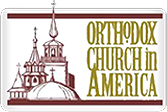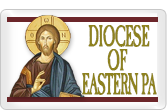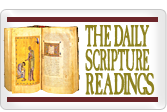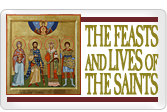HOLY RESURRECTION ORTHODOX CATHEDRAL is a parish community of the Diocese of Philadelphia & Eastern Pennsylvania of the Orthodox Church in America (OCA). Our bishop, Archbishop MARK (Maymon), provides spiritual oversight for our community. The parish community was founded in 1892 by Fr. Alexis Toth (now a canonized saint in the Orthodox Church).
+MARK, Archbishop of Philadelphia and the Diocese of Eastern Pennsylvania
This survey will contribute to a study being completed by Nicola Nunu, a seminarian at St. Tikhon’s Seminary. He seeks to conduct an impactful study on how to best serve our young people and your contribution is vital! It is important for us to understand how we can effectively minister to and keep our young people in the Church. It will take only approximately 7 minutes and can be also found below. Your response is so valuable. Thank you for your contribution to the Church and to our young people! National Orthodoxy Survey | Diocese of Eastern Pennsylvania (doepa.org)
Great-Lent-2024.pdf (doepa.org)
Youth Camp Volunteers Needed
Volunteers and Counselors Needed! | Diocese of Eastern Pennsylvania (doepa.org)
Encyclical from the All American Council for July of 2022, https://www.oca.org/holy-
Follow the Diocese on Instagram: Follow us @oca_doepa or OCA Diocese of Eastern PA
Saturday- Great Vespers 4:00 p.m.
Sunday- Prayer of the Hours 8:40 am & Divine Liturgy 9:00 a.m.
Eve of Major Feast Days - Great Vespers 6:00 pm (followed by holy Confession), see DOEPA Directive
Major Feast Days - Divine Liturgy 9:00 a.m.
Rector: Fr. Gregory G. White Sr. 570-822-7725 gregory.white@stots.edu
Mitred Archpriest Vladimir Petorak: Pastor Emeritus
Protodeacon: Sergei Kapral
Mr. David Hutz: Board of Directors President
Catechism Classes - For those who are interested in finding out more about the Holy Orthodox Church or how to go about joining, classes are offered on a continual / rotating basis. For more information contact Fr. Gregory at 570-822-7725 or email him at: gregory.white@stots.edu
Daily Scripture Readings - Orthodox Church in America (oca.org)
Our Orthodox Christian study group will continue after Pascha:
The Heavenly Banquet, Understanding the Divine Liturgy, by Fr. Emmanuel Hatzidakis, Orthodox Witness Press, ISBN 978-0-90778970-1-8
If you have always wanted to know why the Orthodox Divine Liturgy is celebrated the way it is join us.
A five book series: Revelation, The Seven Golden Seals by Archimandrite Athanasios Mitilinaios ISBN 978-0-9851915-2-8, Zoe Press, Monday nights @ 6:30 p.m. held in the hall of Holy Resurrection Orthodox Cathedral 591 N. Main St. Wilkes-Barre, PA. Bring your Orthodox Study Bible! First time visitors should call ahead of time to confirm the weekly schedule.
Many of the following books are rated four to five stars. These books are recommended reading for those who want to know more about the Holy Orthodox Faith and Christs' Church! If you take the time to read you will find out that the Church still exists today. James 1:5, "If any of you lack wisdom, let him ask of God, that giveth to all men liberally, and without reproach; and it shall be given him."
Information on Mount Athos
https://en.wikipedia.org/wiki/Mount_Athos
https://www.youtube.com/watch?v=6mXl8C4-M_4&t=15s
https://www.youtube.com/watch?v=5D8OxrSZZU8&t=361s
Thirsting for God in a Land of Shallow Wells by Matthew Gallatin, St. Valdimir's Seminary Press, ISBN 978-1-888212-28
The Truth, What Every Roman Catholic Should Know About the Orthodox Church by Clark Carlton, Regina, Salisbury, MA
The Faith, Understanding Orthodox Christianity, An Orthodox Catechism also by Clark Carlton
The Way, What Every Protestant Should Know About the Orthodox Faith also by Clark Carlton
Knowledge of God by Dr. Harry Boolas, St. Tikhon's Seminary Press ISBN 978-1-878997-83-8
Current members of the Holy Orthodox Faith, or the more advanced inquirer are encouraged to also check out the following titles. They will help with your understanding of who Jesus Christ is... What happened to the early Church? Does it still exist? What's Orthodox Salvation all about?
Matthew The Poor, Orthodox Prayer Life, The Interior Way, by Father Matta El-Meskeen, St. Valdimirs Press, ISBN 978-0-88141-250-5
The Soul's Longing An Orthodox Christian Perspective on Biblical Interpretation by Dr. Mary Ford ISBN 978-0-9905029-6-8
A must read for those that struggle with Biblical Interpretation in this day and age of Denominationalism. Read how the early Church understood the Holy Scripture and it's Tradition.
The Orthodox Study Bible by Thomas Nelson Publishing. Full of commemtary, teachings, references and study articles ISBN 978-0-7180-0359-3
Orthodox Spirituality by Metropolitan Nafpaktos Hierotheos, Birth of the Theotokos Monastery ISBN 978-960-7070-20-3
Passions and Virtues According to St. Gregory Palamas by Anestis Keselopoulos, St. Tikhon's Seminary Press, ISBN 1-878997-75-0
Acquiring the Mind of Christ by Archimandrite Serguis, St. Tikhon's Monastery Press, ISBN 978-0-995029-9-9
https://sttikhonsmonastery.org/
Glory and Honor, Orthodox Christian Resources on Marriage by Dr. David Ford, Dr. Mary Ford and Alfred Kentigern Siewers. Editors, St. Valdimirs Seminary Press, ISBN 9789-0-8841-540-1. A must read before you get married!
Angels and Demons by Dr. Harry Boosalis, ISBN 978-1-878997-83-8
Holy Traditon by Dr. Harry Boosalis, ISBN 978-0-9884574-2-3
Orthodox Spiritual Life According to Saint Silouan the Anthonite by Dr. Harry Boosalas, St. Tikhon's Seminary Press, ISBN 978-1-878997-60-9
Man the Target of God by Archimandrite Zacharias, Mount Tabor Publishing
The following series of titles expand even more on Wisdom and Spirituality inspired by the Holy Spirit by the Monastic life on Mount Athos. The three stages of Orthodox Christian Salvation; Purification, Illumination and Deification are outlined throughout these timeless resources.
Remember Thy First Love by Archimandrite Zacharias, Mount Tabor Publishing
Enlargement of the Heart by Archimandrite Zacharias, Mount Tabor Publishing
The Hidden Man of the Heart by Archimandrite Zacharias, Mount Tabor Publishing
Saint Silouan the Anthonite by Archimandrite Sophrony, Mount Tabor Publishing
Information on Mount Athos, also posted above!
https://en.wikipedia.org/wiki/Mount_Athos
3rd Sunday of Great Lent: Veneration of the Cross

The Third Sunday of Lent is that of the Veneration of the Cross. The cross stands in the midst of the church in the middle of the lenten season not merely to remind men of Christ’s redemption and to keep before them the goal of their efforts, but also to be venerated as that reality by which man must live to be saved. “He who does not take up his cross and follow me is not worthy of me” (Mt.10:38). For in the Cross of Christ Crucified lies both “the power of God and the wisdom of God” for those being saved (1 Cor.1:24).




